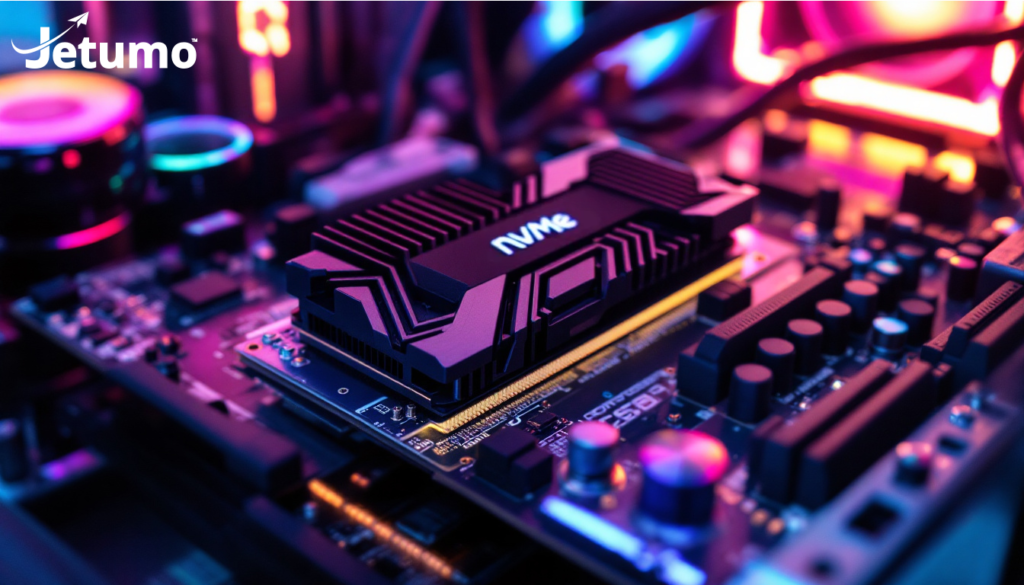If you own a WordPress website for your business, blog, or online store, you’ve probably encountered frustrating performance issues at some point. Slow-loading pages, timeouts during traffic spikes, or poor Google PageSpeed scores can all stem from one crucial factor many website owners overlook: the web server powering your site.
While many hosting providers still use the traditional Apache server, newer technologies like OpenLiteSpeed offer significant performance advantages that directly impact your website’s speed, user experience, and even search rankings. This comprehensive comparison will help you understand the real differences between OpenLiteSpeed vs Apache, and why this technical choice matters for your WordPress website’s success.
What Exactly Are Web Servers and Why Do They Matter for Your Website?
A web server is the software that delivers your website to visitors when they type in your URL. It processes requests, runs your WordPress code, and sends the resulting web pages back to users’ browsers. The efficiency of this process directly affects how fast your website loads and performs.
For WordPress sites specifically, the web server handles critical functions including:
- Processing PHP (the programming language WordPress uses)
- Managing simultaneous visitor connections
- Handling database queries
- Serving static content (images, CSS, JavaScript)
- Implementing caching and compression
Your choice of web server dramatically impacts these functions, which is why understanding the OpenLiteSpeed vs Apache comparison is crucial for website owners who care about performance. Similar to choosing the right WordPress plugins for your business website, selecting the appropriate web server technology forms a critical foundation for your online presence.
What is Apache HTTP Server and How Does it Work?
Apache HTTP Server (commonly referred to as just “Apache”) is the world’s most widely used web server. Developed in 1995 by the Apache Software Foundation, Apache has been the backbone of web hosting for decades and still powers approximately 30% of all websites.
What Makes Apache Popular Among Web Hosting Providers?
Apache’s enduring popularity stems from several key characteristics:
- Modular architecture: Allows functionality to be added through modules
- Wide compatibility: Works with virtually all hosting environments and Linux distributions
- Familiar configuration: Well-documented and understood by most developers
- .htaccess support: Allows for directory-level configuration changes
- Open-source web server: Free to use and modify for any purpose
Apache’s widespread adoption means it’s well-supported across the hosting industry, with extensive documentation and a large community of developers who understand its configuration and management.
What Limitations Does Apache Have for WordPress Sites?
While Apache has served the web well for many years, it has significant limitations for WordPress websites:
- Process-based architecture: Creates a new process for each connection, consuming more server resources
- Slow PHP execution: Less efficient at processing PHP compared to newer alternatives
- Resource-intensive: Requires more CPU and RAM to handle the same traffic
- Performance degradation under load: Slows down significantly during traffic spikes
These limitations translate directly to slower page load times, reduced capacity to handle visitors, and higher hosting costs as you need more powerful servers to achieve decent performance. Many of the WordPress speed optimization techniques you might implement could be limited by Apache’s underlying architecture.
What is OpenLiteSpeed and How is it Different from Apache?
OpenLiteSpeed is the open-source version of LiteSpeed Web Server, specifically engineered for high performance and efficiency by LiteSpeed Technologies. It’s designed as a drop-in replacement for Apache but with significantly improved architecture and WordPress-specific optimizations.
What Key Advantages Does OpenLiteSpeed Offer Over Apache?
- Event-driven architecture: Handles thousands of concurrent connections with minimal resources
- Integrated PHP processing: More efficient PHP execution compared to Apache
- Built-in caching system: Native LSCache delivers exceptional performance for WordPress
- HTTP/3 and QUIC support: Latest protocols for faster content delivery
- Apache compatibility: Works with .htaccess rules and Apache configurations
OpenLiteSpeed was created specifically to address the performance limitations of Apache while maintaining compatibility, making it particularly well-suited for WordPress sites that need both speed and compatibility with existing plugins and themes.
How Different are OpenLiteSpeed vs Apache in Performance?
When comparing OpenLiteSpeed and Apache for WordPress websites, the fundamental architectural differences lead to significant performance variations. Rather than relying on potentially inconsistent benchmark data from across the web, let’s examine the key structural advantages that influence real-world performance:
How Does Connection Handling Differ Between Apache and OpenLiteSpeed?
OpenLiteSpeed uses an event-driven architecture, while Apache traditionally uses a process-based model:
- Apache’s process model: Creates separate processes or threads for each connection, consuming more memory and CPU resources per visitor
- OpenLiteSpeed’s event-driven model: Handles multiple connections within the same process, drastically reducing resource usage and allowing more concurrent visitors
This architectural difference becomes particularly important during traffic spikes or when running resource-intensive WordPress sites, similar to how proper website performance monitoring helps identify bottlenecks.
How Do Apache and OpenLiteSpeed Process PHP Differently?
WordPress relies heavily on PHP processing, making this a critical factor:
- Apache with mod_php: Loads the PHP interpreter into every web server process, increasing memory usage
- OpenLiteSpeed with LSAPI: Uses a more efficient PHP processing method that separates PHP from the web server processes
This difference in PHP handling can significantly impact WordPress performance, especially for dynamic content that can’t be cached.
What WordPress-Specific Optimizations Does OpenLiteSpeed Include?
OpenLiteSpeed includes several WordPress-specific optimizations not available with standard Apache:
- Optimized rewrite rules: Better handling of WordPress permalink structures
- Efficient static file serving: Improved delivery of images, CSS, and JavaScript
- Better handling of simultaneous connections: More stable performance during traffic spikes
A Note on Benchmarks and Performance Testing
While many benchmark comparisons exist online, results can vary significantly based on testing methodology, server configuration, and WordPress setup. Rather than presenting potentially misleading specific numbers, we believe in transparency.
Jetumo’s Commitment: We’re conducting our own comprehensive, controlled tests comparing OpenLiteSpeed and Apache performance with identical WordPress configurations. We’ll share these detailed findings in an upcoming post, including our testing methodology, configuration details, and raw results so you can evaluate the differences yourself.
What we can confidently state based on the architectural differences is that OpenLiteSpeed typically delivers:
- Faster response times for WordPress pages
- Higher concurrent user capacity with the same server resources
- More efficient PHP processing
- Better handling of traffic spikes
These advantages directly impact the metrics that matter most for your business website.
Why is LSCache a Game-Changer for WordPress Sites?
One of the most significant advantages of OpenLiteSpeed for WordPress websites is the integrated LSCache system and its free WordPress plugin.
What Makes LSCache Different from Other WordPress Caching Solutions?
Unlike other caching solutions, LSCache operates at the server level rather than the application level, delivering several unique benefits:
- Server-level integration: Cache generation and delivery happen before PHP is even executed
- Automatic cache purging: When content changes, relevant cache is instantly cleared
- ESI (Edge Side Includes): Allows dynamic content within cached pages
- Intelligent page rules: Different caching strategies for different content types
- Image optimization: Automatic WebP conversion and optimization
How Does LSCache Compare to Other WordPress Caching Plugins?
While specific performance numbers vary across different websites and configurations, LSCache has several architectural advantages over application-level caching plugins typically used with Apache:
- Integration with the web server: Unlike WordPress plugins that run after PHP is loaded, LSCache operates directly within the web server
- Reduced CPU and memory overhead: Caching happens before WordPress loads, saving server resources
- Dynamic caching capabilities: Better handling of personalized content and logged-in users
- Optimized for WordPress: Specifically designed for WordPress sites with automatic cache management
We’re planning comprehensive, controlled tests comparing LSCache against other popular caching solutions, which we’ll share in a future article with full transparency about methodology and results. For many business websites, proper caching is as important for security as the WordPress security hardening steps you implement.
How Does Server Choice Impact Your Business Website?
The technical differences between OpenLiteSpeed and Apache translate to tangible business benefits:
How Does Web Server Performance Affect User Experience and Conversion Rates?
Research from various industry sources consistently shows that:
- Faster websites have lower bounce rates and higher engagement
- Page speed directly impacts conversion rates across all industries
- Mobile users are particularly sensitive to loading times
While the exact impact varies by business type and audience, choosing a faster server technology like OpenLiteSpeed can help improve these critical business metrics.
Can Web Server Choice Influence Search Engine Rankings?
Google has explicitly confirmed that page speed and user experience metrics (Core Web Vitals) are ranking factors. Server performance directly influences:
- Largest Contentful Paint (LCP): How quickly the main content loads
- First Input Delay (FID): How responsive the page is to user interaction
- Cumulative Layout Shift (CLS): Visual stability as the page loads
A properly configured OpenLiteSpeed server helps address the server-side factors that influence these metrics.
How Can the Right Web Server Help Reduce Hosting Costs?
Because of its more efficient architecture, OpenLiteSpeed can theoretically:
- Handle more simultaneous visitors with the same resources
- Require less powerful server specifications for the same performance
- Provide stability during traffic spikes without requiring oversized servers
This efficiency can translate to cost savings over time or better performance within the same budget, making it an appealing option for small business web hosting needs.
How Does OpenLiteSpeed Reduce Technical Headaches?
Properly configured OpenLiteSpeed hosting can help reduce common WordPress technical issues:
- Fewer 503 errors during traffic spikes
- Reduced database connection problems
- More consistent performance across different types of WordPress pages
- Simplified caching configuration with LSCache
What Are Common Myths About OpenLiteSpeed vs Apache?
Myth 1: “Apache is More Stable Because It’s Older”
Reality: OpenLiteSpeed has proven exceptionally stable in production environments. Its modern architecture actually reduces crash scenarios compared to Apache. While Apache has the advantage of longevity, OpenLiteSpeed’s code is mature and well-tested in high-traffic production environments.
Myth 2: “OpenLiteSpeed Isn’t Compatible with WordPress Plugins”
Reality: OpenLiteSpeed maintains full compatibility with WordPress and its plugins. The only differences emerge with certain server-level caching plugins, which are replaced by the superior LSCache. In fact, OpenLiteSpeed’s architecture can actually improve plugin performance due to its more efficient PHP processing.
Myth 3: “You Need Technical Expertise to Use OpenLiteSpeed”
Reality: When using a hosting provider that properly configures OpenLiteSpeed (like Jetumo), the end-user experience is identical or simpler than with Apache, with the added benefit of the user-friendly LSCache plugin. Most of the configuration happens at the server level, which your hosting provider handles.
Myth 4: “Apache is Free, but OpenLiteSpeed Costs Money”
Reality: OpenLiteSpeed is completely open-source and free to use. The commercial version (LiteSpeed Web Server) requires licensing, but OpenLiteSpeed delivers most of the same benefits at no cost. This makes it an ideal solution for semi-premium hosting providers looking to offer better performance without increasing costs.
How Do You Switch from Apache to OpenLiteSpeed?
If you’re considering moving from Apache to OpenLiteSpeed hosting, here’s what you can expect:
- Website Migration Process: Most websites require no code changes when moving from Apache to OpenLiteSpeed
- Configuration Transition: OpenLiteSpeed is designed to use Apache-style configurations
- Performance Tuning: Optimizing for OpenLiteSpeed involves enabling LSCache and adjusting server settings
- Plugin Compatibility: All standard WordPress plugins work with OpenLiteSpeed
The most straightforward way to switch is to choose a hosting provider that already offers OpenLiteSpeed, as they’ll handle all the server-side configuration details for you.
How Do You Know if Your Current Host Uses Apache or OpenLiteSpeed?
Not sure which web server your current hosting uses? Here’s how to check:
- Check server headers: Use tools like WebPageTest to see server response headers
- Ask your host directly: Contact support and ask which web server they use
- Look for LSCache: If you see LSCache in your hosting features or WordPress admin, you’re on LiteSpeed/OpenLiteSpeed
- Check for .htaccess usage: While both servers use .htaccess, specific directives may reveal which server you’re using
Most budget hosting providers still use Apache, while semi-premium providers like Jetumo have upgraded to OpenLiteSpeed for better performance.
How Do OpenLiteSpeed and Apache Compare to Nginx?
Another popular web server option is Nginx, which is worth considering in the comparison:
- Apache: Process-based, high compatibility, widely used but less efficient
- OpenLiteSpeed: Event-driven, Apache-compatible, excellent WordPress performance with LSCache
- Nginx: Event-driven, requires separate PHP processor, popular for high-traffic sites
OpenLiteSpeed combines many of Nginx’s performance benefits with Apache’s compatibility, making it particularly well-suited for WordPress sites. While Nginx is an excellent web server, OpenLiteSpeed offers specific advantages for WordPress sites through its integrated LSCache system and seamless compatibility with WordPress plugins and themes.
How Do You Choose the Right Web Server for Your WordPress Site?
When evaluating hosting options, the web server technology should be a key factor in your decision. Here’s what to consider:
- Site purpose and goals: Business and e-commerce sites benefit most from OpenLiteSpeed’s performance advantages
- Traffic volume: Higher traffic sites see more dramatic benefits from OpenLiteSpeed
- Budget considerations: OpenLiteSpeed delivers premium-level performance at semi-premium hosting prices
- Technical comfort level: Choose a host that properly configures OpenLiteSpeed so you don’t need to manage it
Remember that the web server is just one component of your hosting stack. For optimal performance, look for hosting that combines:
- OpenLiteSpeed web server
- NVMe storage technology
- Proper server configuration
- WordPress optimization expertise
- Reasonable server density (not overcrowded)
Conclusion: Is OpenLiteSpeed Better Than Apache for WordPress?
The OpenLiteSpeed vs Apache comparison reveals clear advantages for OpenLiteSpeed when it comes to WordPress website performance, resource efficiency, and overall user experience. While Apache has served the web faithfully for decades, OpenLiteSpeed represents the modern approach to web serving that’s specifically optimized for today’s WordPress websites.
For business owners and content creators, the choice of web server technology might seem like a technical detail, but its impact on your website’s success is significant. Faster loading times, improved search rankings, better user experience, and lower operating costs all stem from this fundamental hosting decision.
Key Takeaways About OpenLiteSpeed vs Apache:
- Architecture Matters: OpenLiteSpeed’s event-driven design handles connections more efficiently than Apache’s process-based approach
- PHP Performance: OpenLiteSpeed processes PHP (critical for WordPress) more efficiently than Apache
- WordPress Optimization: OpenLiteSpeed includes specific optimizations for WordPress websites
- LSCache Advantage: The integrated LSCache system provides server-level caching that outperforms application-level solutions
- Business Impact: Faster websites improve user experience, SEO rankings, and potentially conversion rates
- Compatibility: OpenLiteSpeed maintains compatibility with WordPress plugins and themes
- Ease of Use: When properly configured by your host, OpenLiteSpeed requires no special technical knowledge
- Cost Efficiency: OpenLiteSpeed’s resource efficiency can help reduce hosting costs over time
Looking for WordPress hosting powered by OpenLiteSpeed and NVMe technology? Jetumo provides semi-premium hosting with properly configured OpenLiteSpeed, LSCache, and human technical support starting at just $9.95/month. Enjoy premium-level performance without the premium price tag.



